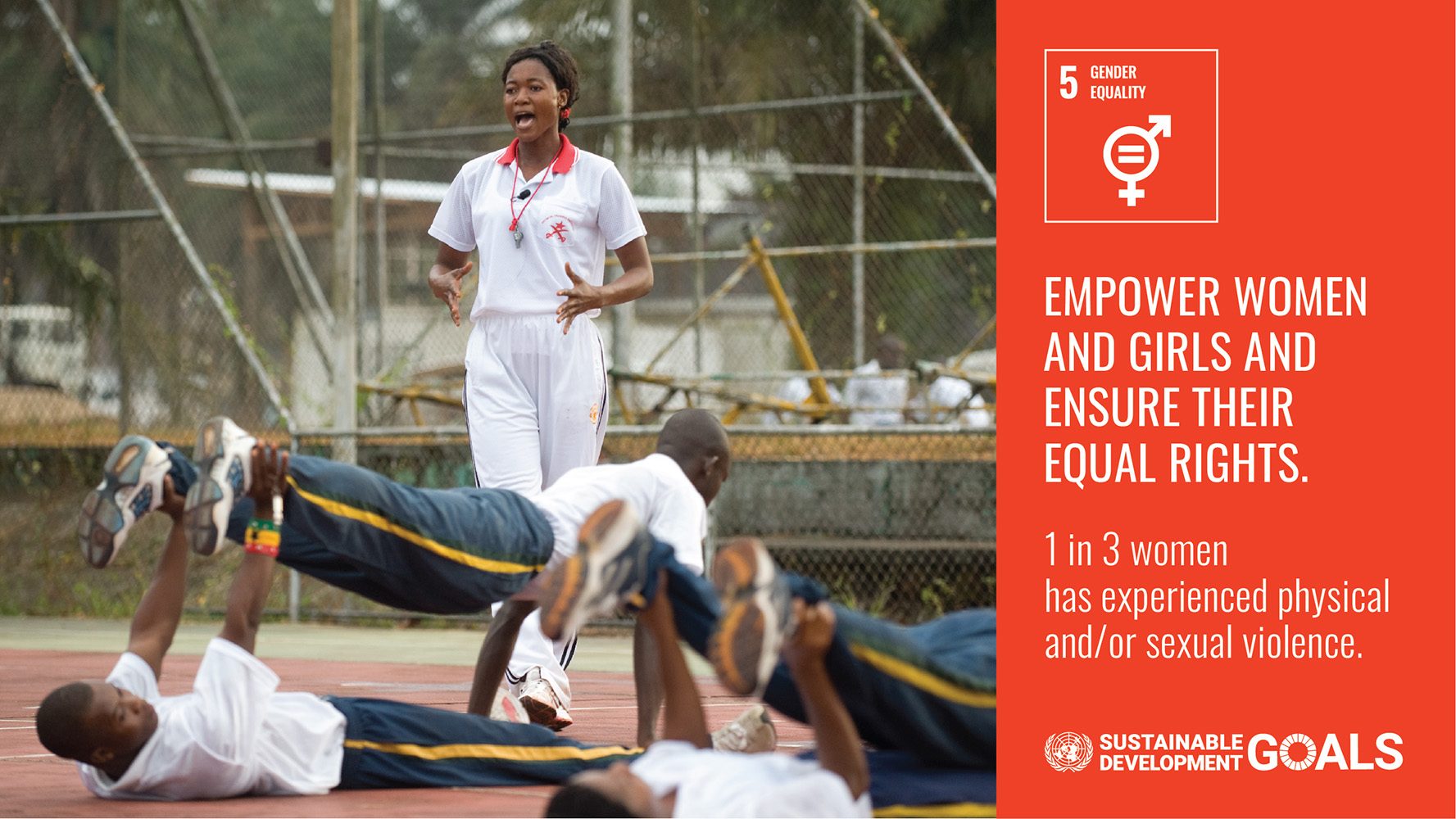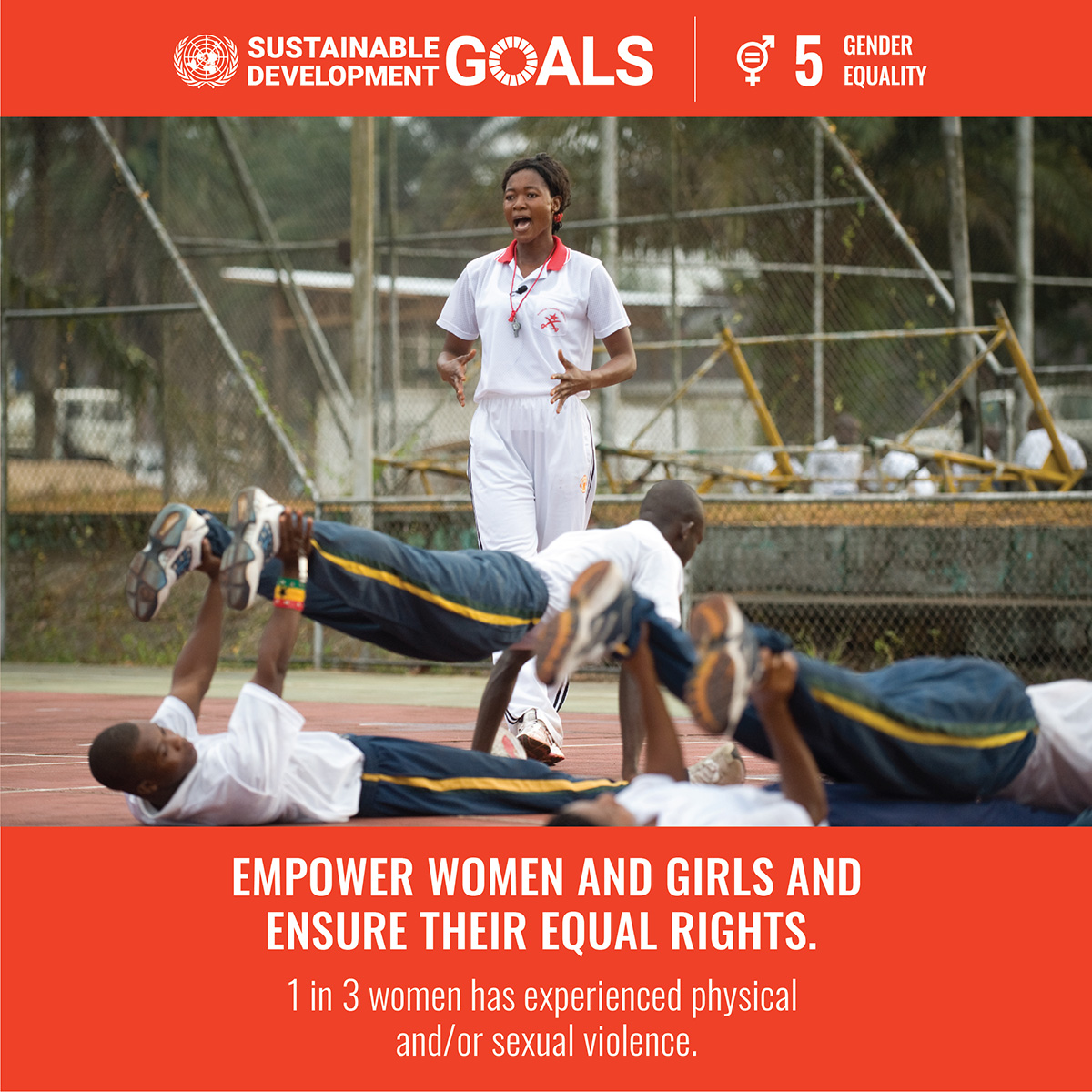When women attain equality, families, society and communities’ flourish.
Women’s rights are human rights and gender equality is at the very heart of human rights and at the core of what we do.
In 2015, all member states of the UN signed up to a global goal to achieve gender equality and the empowerment of all women and girls by 2030 and gender-based discrimination is prohibited under almost every human rights treaty.
Despite momentum behind the cause and great strides and progress towards securing women’s rights, millions of women and girls continue to experience discrimination and are being denied of their equality and dignity and even life.
Gender inequality is one of the oldest and most pervasive forms of inequality in the world. There is no country in the world where women and girls as a group are not disadvantaged in relation to men and boys.
We are committed to helping women and children live healthier, happier, fulfilled lives and empowering them to reach their potential.
Our world will be better off with more women participating and contributing to every layer of society.
Transformative change towards gender equality requires continued bold collaborative efforts, changes in laws, regulations and policies, sustainable investments and a radical shake up of the status quo which maintains and upholds gender norms and power relations.
Ghana has enacted several pieces of legislation related to women’s rights and gender equality. Some key legislation related to women in Ghana includes:
CEDAW: In 1989, Ghana ratified the United Nations Convention on the Elimination of all forms of Discrimination against Women (CEDAW)
1992 Constitution of Ghana: The Constitution of Ghana, adopted in 1992, contains provisions guaranteeing gender equality and nondiscrimination. Article 17(1) prohibits discrimination on various grounds, including gender, and Article 17(2) mandates affirmative action to address gender imbalances in political and public life.
Domestic Violence Act, 2007 (Act 732): This law addresses issues related to domestic violence and provides protection for victims, including women. It defines various forms of domestic violence and outlines the legal procedures for obtaining protection orders.
Intestate Succession Law, 1985 (PNDCL 111): This law governs the distribution of property in cases of intestacy (when a person dies without a will) and includes provisions aimed at protecting the inheritance rights of widows and children.
Matrimonial Causes Act, 1971 (Act 367): This law regulates various aspects of marriage, divorce, and matrimonial property. It includes provisions related to the rights of spouses, including women, in cases of divorce.
Children’s Act, 1998 (Act 560): While primarily focused on the rights and welfare of children, this law contains provisions aimed at protecting the rights of girls and addressing issues such as child marriage and child labor.
Human Trafficking Act, 2005 (Act 694): This legislation criminalizes human trafficking and includes provisions for the protection and support of victims, many of whom are women and girls.
The Criminal Offences Act, 1960 (Act 29): This law contains provisions related to various criminal offenses, including those related to sexual offenses and violence against women.
The Commission on Human Rights and Administrative Justice: The Commission on Human Rights and Administrative Justice [CHRAJ] was established under the 1992 Constitution of Ghana by the CHRAJ Act, 1993 [Act 456]. It has three (3) broad mandates, namely, human rights, administrative justice, and anti-corruption.
Affirmative Action Bill (Draft): There is a draft Affirmative Action Bill aimed at promoting gender equality and increasing the participation of women in decision-making processes. The bill proposed various affirmative action measures in education, politics, and employment.
Ghana legislated an Affirmative Action Act in the middle of 1960, which allowed ten women members to represent the regions of the country in the then legislature.
The law recognised that women’s political participation was a critical component of democratic dialogue and social cohesion.
Women’s representation in all policy-making spaces in Ghana stands below the United Nations (UN) threshold of 30 per cent.
The Affirmative Action (Gender Equality) Bill was on Tuesday, March 21, 2023, resubmitted to Cabinet for consideration.


SDG 5 GENDER EQUALITY
The Sustainable Development Goals are the United Nation’s blueprint to achieve a better and more sustainable future for all. They address the global challenges we face, including those related to poverty, inequality, climate change, environmental degradation, peace and justice. The 17 Goals are all interconnected, and in order to leave no one behind, it is important that we achieve them all by 2030.
Sustainable Development Goal 5 is Gender Equality – Achieve gender equality and empower all women and girls.
Gender equality is not only a fundamental human right, but a necessary foundation for a peaceful, prosperous and sustainable world. There has been progress over the last decades, but the world is not on track to achieve gender equality by 2030.
Women and girls represent half of the world’s population and therefore also half of its potential. But gender inequality persists everywhere and stagnates social progress.
At the current rate, it will take an estimated 300 years to end child marriage, 286 years to close gaps in legal protection and remove discriminatory laws, 140 years for women to be represented equally in positions of power and leadership in the workplace, and 47 years to achieve equal representation in national parliaments.
Political leadership, investments and comprehensive policy reforms are needed to dismantle systemic barriers to achieving Goal 5 Gender equality is a cross-cutting objective and must be a key focus of national policies, budgets and institutions.
Guided by SDG 5, Born Equal is working in collaboration with partners to deliver impactful solutions to identified problems in our focus areas.
5.1 End all forms of discrimination against all women and girls everywhere
5.2 Eliminate all forms of violence against all women and girls in the public and private spheres, including trafficking and sexual and other types of exploitation
5.3 Eliminate all harmful practices, such as child, early and forced marriage and female genital mutilation
5.4 Recognize and value unpaid care and domestic work through the provision of public services, infrastructure and social protection policies and the promotion of shared responsibility within the household and the family as nationally appropriate
5.5 Ensure women’s full and effective participation and equal opportunities for leadership at all levels of decision making in political, economic and public life
5.6 Ensure universal access to sexual and reproductive health and reproductive rights as agreed in accordance with the Programme of Action of the International Conference on Population and Development and the Beijing Platform for Action and the outcome documents of their review conferences
5.A Undertake reforms to give women equal rights to economic resources, as well as access to ownership and control over land and other forms of property, financial services, inheritance and natural resources, in accordance with national laws
5.B Enhance the use of enabling technology, in particular information and communications technology, to promote the empowerment of women
5.C Adopt and strengthen sound policies and enforceable legislation for the promotion of gender equality and the empowerment of all women and girls at all levels.
Source: UN Sustainable Development
